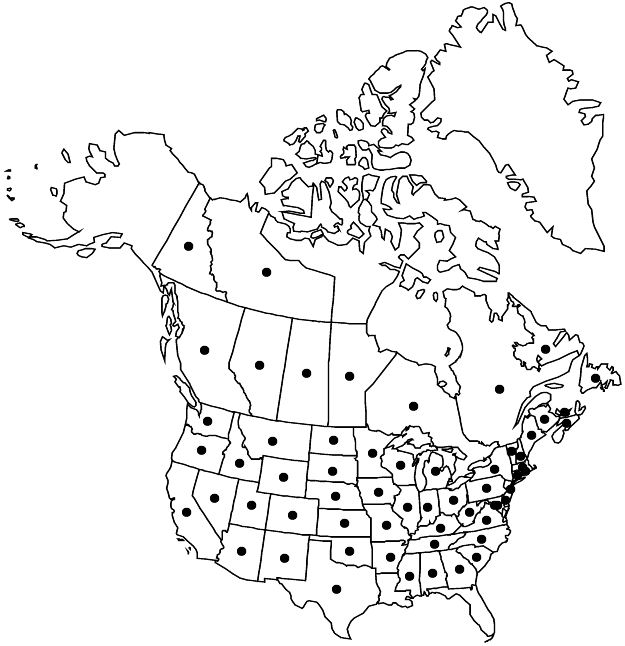Comandra umbellata
Gen. N. Amer. Pl. 1: 157. 1818.
Selected by author to be illustrated
Basionym: Thesium umbellatum Linnaeus
Treatment appears in FNA Volume 12. Treatment on page 409.
Revision as of 15:43, 18 September 2019 by FNA>Volume Importer
Leaf blades light green to grayish or bluish green, lanceolate, elliptic, or ovate, 0.7–5.3 cm, apex obtuse, acute, or acuminate. Flowers: hypanthium base not dilated.
Distribution

North America, n Mexico, s Europe (Balkan peninsula).
Discussion
Subspecies 4 (3 in the flora).
Comandra umbellata is likely the most widespread Santalales species, occurring throughout the United States, southern Canada, and northern Mexico as well as in the Balkan peninsula, where subsp. elegans (Rochel ex Reichenbach) Piehl occurs. Comandra umbellata is the alternate host for comandra blister rust (Cronartium comandrae), which damages pines in North America.
Selected References
None.
Lower Taxa
Key
| 1 | Leaf blades thin, green, not glaucous; pseudodrupes 4–6 mm; rhizome cortex white to beige; Canada, c, e United States. | Comandra umbellata subsp. umbellata |
| 1 | Leaves thin or thick, becoming ± succulent, green to grayish or bluish green, glaucous; pseudodrupes 5–9 mm; rhizome cortex blue, drying blackish; w North America. | > 2 |
| 2 | Leaf blade lateral veins obscure on abaxial surface; proximal part of aerial stems not overwintering; herbs 5–33 cm. | Comandra umbellata subsp. pallida |
| 2 | Leaf blade lateral veins apparent on abaxial surface; proximal part of aerial stems overwintering; subshrubs 15–40 cm. | Comandra umbellata subsp. californica |